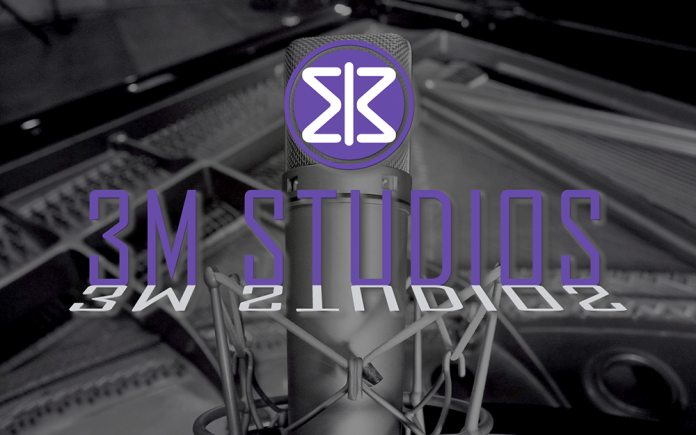
By Mandy Calvano
So you just heard about 3M Studios and now you are dying to get into the studio with your band, but you’re just not sure if you have everything together enough to come in. Here are some pro tips for you to get the most out of your rehearsal time.
Coordinate a day and time that works for everyone. You may want to consider keeping the day and time you choose as a regular schedule depending on your rehearsal purpose. Know the purpose of your rehearsal. If it is to write new material from scratch and to develop songwriting ideas, it can be difficult to create a structure as such. But, if it is to rehearse existing material, or to learn covers and build a song-list, or to run through an entire gig set before a performance, be organized as to what you want to achieve and use the time to accomplish.
Send out a list of what songs will be rehearsed, the key they will be performed in and any relevant points of note for individual instruments, such as solos or extended sections.
Be Prepared, Be On Time. Remember music lessons when you were a kid? For some of us, the lesson was practice. It shouldn’t be that way when you rehearse with your band, however.
Unless you’re writing new material together during your rehearsal time, band members should have practiced their parts in advance. That’s the difference between band practice and band rehearsal. Practice is what you do on your own time. Rehearsal is what you do together.
R-E-S-P-E-C-T
(you sang it, we heard you)
Be courteous to your band mates. Don’t play a drum solo while the vocalist and background singers are trying to work out a harmony. Don’t noodle on guitar while someone else is trying to make a point to the group. Unless you’re using your mobile device to record rehearsal, pull up lyrics or chords, or play a song you’re working on, put it aside. It’s a distraction.
Leave Your Friends Behind or Consider a Friend Policy Your band should discuss a friend policy prior to rehearsal. Some bands feel if they’re not running sound or part of the act, they need to stay home. Others, create a time during rehearsal for friends. Also, sobriety rules. You won’t play well if you can’t see straight. Save the partying for after a successful gig. (3M Studios is a drug, alcohol, and tobacco free campus)
Check Levels
Setting levels can help your rehearsal flow smoothly. Running every instrument through a live desk will give you control over the volume and individual levels in the mix. Where possible, keep the volume levels down and you will find you feel less tired during and after the rehearsal.
Pumping everything up will just drain you as your ears become fatigued by the volume levels. IEMS (in ear monitor systems) can make things easier and may allow you to do away with speaker cabinets, PA speakers and loud drum kits if you choose to go down the electronic kit route.
Schedule Rehearsal Breaks
This helps you keep your volume in check, gives your ears a break and allows your band a chance to recharge. A quick 10 minute break for bathroom, cell phone check, and water can do wonders for everyone’s energy levels.
Get It Right
Rehearsal gives you the opportunity to do something you can’t do in a live performance: go back and fix mistakes. Sure, it can be tedious to repeat the same twelve bars 20 times, but it’s better to smooth out the rough spots in rehearsal than in front of an audience.
You should be using band practices as a place to not only develop your performances and learn songs, but to also become as tight as possible. One of the best ways to improve your process and become tight as a group is to use a metronome or ‘click track’ when playing.
Document & Record Rehearsals
A key feature of your band rehearsal routine should be documenting. A simple way to cover this is to record every single rehearsal.
When you listen to something back, that’s when you start to hear discrepancies in the sound. There’s no reason why you can’t pop your phone down and record a voice note of the session. Or even pop your phone on a stand and film it to capture it visually too.
There are so many more topics to cover and we will be bringing more tips to you every month. We hope to make your rehearsal experience the best and most fun it can be.
TIPS TO TAKE WITH YOU TO REHEARSAL
- Define The Purpose Of Your Rehearsal
- Turn Up On Time
- Prepare Keys, Chords & Lyrics Ahead Of Time
- Make A Gear Checklist
- Test Your Gear Before Rehearsals
- Time How Long Set Up & Pack Down Takes
- Don’t Waste Time On Unnecessary Breaks
- Set Up So You All Have Eye Contact
- Get Out Of Your Comfort Zone
- Practice At A Low Volume
- Remove Potential Distractions
- Invite An MD (Musical Director)
- Rehearse With A Metronome To Get Tight
- Warm Up Before You Rehearse
- Introduce Instruments One At A Time
- Loop The Challenging Sections To Nail Those Parts
- No Noodling Allowed
- Document & Record Rehearsals
- Gather Content For Social Media
- Plan Consistent Rehearsals
- End Rehearsals With Constructive Feedback











































